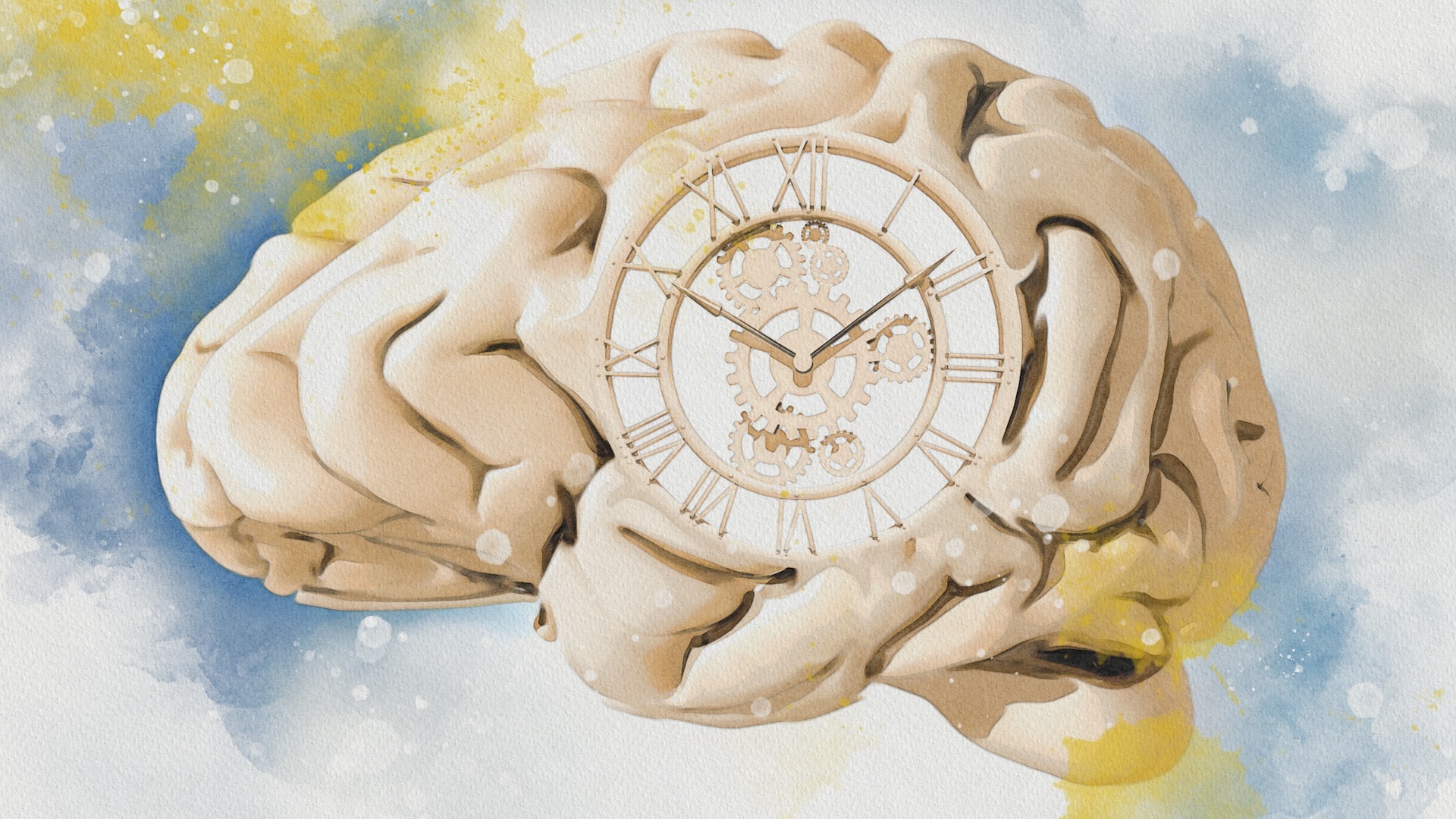New study reveals why time seems to move faster the older we get
A new study hints that age-related changes in our brains may explain why time feels like it's slipping away faster with every passing year.

Scientists may be closer to understanding why time seems to pass more quickly as we age — and brain scans of people watching an old Alfred Hitchcock show helped them address this enduring question.
In a study published Sept. 30 in the journal Communications Biology, scientists pulled data from the Cambridge Centre for Ageing and Neuroscience (Cam-CAN), a long-term brain-aging research project. In total, 577 people had previously watched an excerpt from the old television series "Alfred Hitchcock Presents" — specifically, eight minutes of an episode called "Bang! You're Dead." As the study participants watched the clip, functional MRI (fMRI) scans were recorded; these scans would provide a measure of how the participants' brain activity changed over time.
This particular clip was chosen because previous research showed that, compared with other video clips, it elicits the most synchronous patterns of brain activity in a wide variety of viewers. That makes it ideal for studying how the brain divides and tracks unfolding events.
At the time the brain scans were taken, the participants were between 18 and 88 years old. The researchers got access to these existing fMRI recordings and used the so-called Greedy State Boundary Search (GSBS) to analyze them.
As the name suggests, this computer algorithm detects transitions between stable patterns of brain activity. It does so "greedily" — that is, it identifies these shifts moment by moment, without taking into account the overall structure of the narrative on a longer time scale.
During the eight-minute clip, the brains of older participants shifted to new activity states less frequently, and those brain states lasted longer for them than they did for younger participants. This pattern was consistent across the full age range of 18 to 88 years.
"This suggests that longer [and, therefore, fewer] neural states within the same period may contribute to older adults experiencing time as passing more quickly," the researchers wrote in their report. This aligns with an idea of time that dates back to Aristotle: The more notable events occur in a given time period, the longer it subjectively seems. The new results raise the possibility that if older adults' brains are logging fewer "events" in a given time frame, maybe that's why time seems to fly by.
Get the world’s most fascinating discoveries delivered straight to your inbox.
Although this is only a hypothesis so far, "the idea that this may affect perception and memory in everyday life, including the feeling that subjective time seems to pass faster with age, looks very plausible to me," said Giorgio Vallortigara, a neuroscientist at the University of Trento in Italy who wasn't involved in the new study.
The authors attributed their observations that older adults show fewer transitions between neural states to a phenomenon known as age-related neural dedifferentiation. In this process, the activity of different areas of the brain becomes less specific with age. For example, in young people, groups of neurons in face-selective regions respond more selectively to faces as a category, but in older people, these neuron groups light up more often for objects that aren't faces. This generalization — at the level of broader groups of neurons rather than individual neurons — may be true for the brain as a whole and may make it harder to recognize where one event ends and another begins, the study authors proposed.
However, neural dedifferentiation may not wholly explain why time flies when you're older.
Joanna Szadura, a linguist at Maria Curie-Skłodowska University in Poland, studies how language shapes our perception of time. She told Live Science that the scientists' hypothesis is well-founded but added that we must also take into account that each of us has two time scales.
Society divides time linearly into hours, days and years, while our internal scale follows logarithmic laws. For example, a year is 20% of a 5-year-old's life so far but only 2% of a 50-year-old's. Therefore, the perception of time depends on not only the number of neural "events" in the brain but also the internal nonlinear way in which we measure time.
The researchers noted that older adults may still be able to make time feel subjectively fuller.
"Learning new things, traveling, and engaging in novel activities may help make time feel more expansive in retrospect," study co-author Linda Geerligs, a researcher at Radboud University in the Netherlands, told Live Science in an email. "Maybe even more important though, are meaningful social interactions and activities that bring joy, which can also contribute to a fuller sense of time."
Brain quiz: Test your knowledge of the most complex organ in the body

Slava Amanatski is a freelance science writer with a degree in clinical psychology. He writes about neuroscience, perception, and the science of consciousness.
You must confirm your public display name before commenting
Please logout and then login again, you will then be prompted to enter your display name.
 Live Science Plus
Live Science Plus





